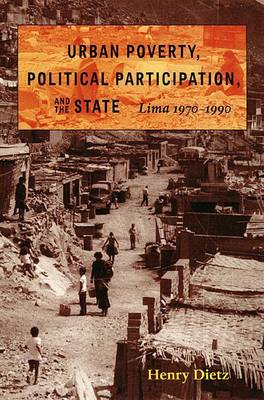Pitt Latin American
1 total work
Urban Poverty, Political Participation, and the State offers an unparalleled longitudinal view of how the urban poor saw themselves and their neighborhoods and how they behaved and organized to provide their neighborhoods with basic goods and services. Grounding research on theoretical notions from Albert Hirschman and an analytical framework from Verba and Nie, Dietz produces findings that hold great interest for comparativists and students of political behavior in general.
